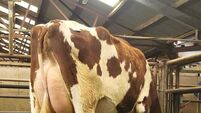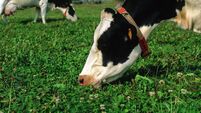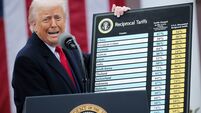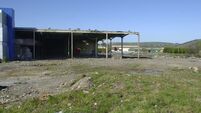Farm View: US tariff war could make Mercosur's threat look mild

Foreign ministers and delegates attend the opening session of the LXV Mercosur Summit in Montevideo last December,. Picture: Getty Images
The Mercosur trade deal, hated by farmers and rejected by the EU for more than 20 years, will soon look like the lesser of two evils, as Washington announces unprecedented tariffs.
US President Donald Trump’s plan for a 25% tariff on cars and car parts brought a trade war a step closer. It led Mark Carney, Canada’s new leader, to describe the US as “no longer a reliable partner”, as he explained that Canada will retaliate.
Germany's economy minister, Robert Habeck, called for a decisive EU response. “It must be clear that we will not back down.”
President Trump had made his intention clear to punish Europe with new tariffs. He exaggerates the trade imbalance between the two, claiming that the EU has long taken advantage of the US.
However, the trade imbalance varies between sectors, and the EU has enjoyed a large agriculture trade surplus with the US for a long period (in 2023, the EU exported €27.1bn and imported €11.7bn).
In contrast, the EU wants to follow established international trade rules. This fundamental divergence makes it hard to find compromises.
The US openly admits that it wants to fundamentally rebalance world trade. And to achieve that, it is willing to play its additional negotiating card, the dependence on the US for defence help of many territories, including the EU.
If the US imposes across-the-board higher duties on imports from the EU, the economic losses will be steep to both sides.
In agriculture, for example, President Trump has indicated that if the EU retaliates against his trade measures, the US would put a 200% tariff on wines from the EU.
That would devastate EU wine exports worth €4.9bn per year. EU exports of spirits (€2.9bn), olive oil (€2.1bn), and cheeses (€1.3bn) are also in the firing line, along with large exports of beer, chocolate, pasta, hams, butter, and other food preparations. Alternative markets cannot be found easily for these products.
World Trade Organisation Director-General Ngozi Okonjo-Iweala warned that tit-for-tat retaliation could bring "catastrophic” double-digit global GDP losses. And the EU agriculture sector is in the front line of the trade war, as a sector where a sizeable trade surplus leaves the EU with more to lose than the US.
How bad could it get? Rabobank, a major global leader in food and agriculture, warned that the US or China could issue ultimatums to neutral countries in the EU and South America. "If the EU and South America were to join sides, the impact of their shifting alliances could severely disrupt trade routes. This would create significant global supply imbalances, ranging from surpluses to dire shortages of key products. Shortages could threaten food security in some parts of the world, while oversupply could depress farmer margins and potentially drive severe farm crisis in others".
In December 2024, the European Commission and the four Mercosur countries of Argentina, Brazil, Paraguay and Uruguay concluded negotiations on a free trade agreement after more than two decades of talks.
Accelerating through the complex ratification process to create the world’s largest free trade area (the EU's 450 million people and the Mercosur population of 280 million) could be a major victory for the EU in the midst of a trade war.
The EU's beef farmers might not see it that way. In January, a Meat Industry Ireland analysis said the proposed Mercosur trade deal would cost the Irish beef sector between €100m and €130m per year, or €75-€95 per head of cattle.
And Copa and Cogeca, representing EU farmer organisations and agricultural co-ops, fear that low-cost imports and weaker production standards in South America will undercut European farmers and lead to over-supply in Europe of beef, poultry, sugar, ethanol, and rice.
However, EU farmers won't be able to feed their livestock if the €2,588m of soya that the EU imports annually from the US becomes a trade war victim.
And it is to South America they would have to turn, as the obvious alternative animal feed protein source.












